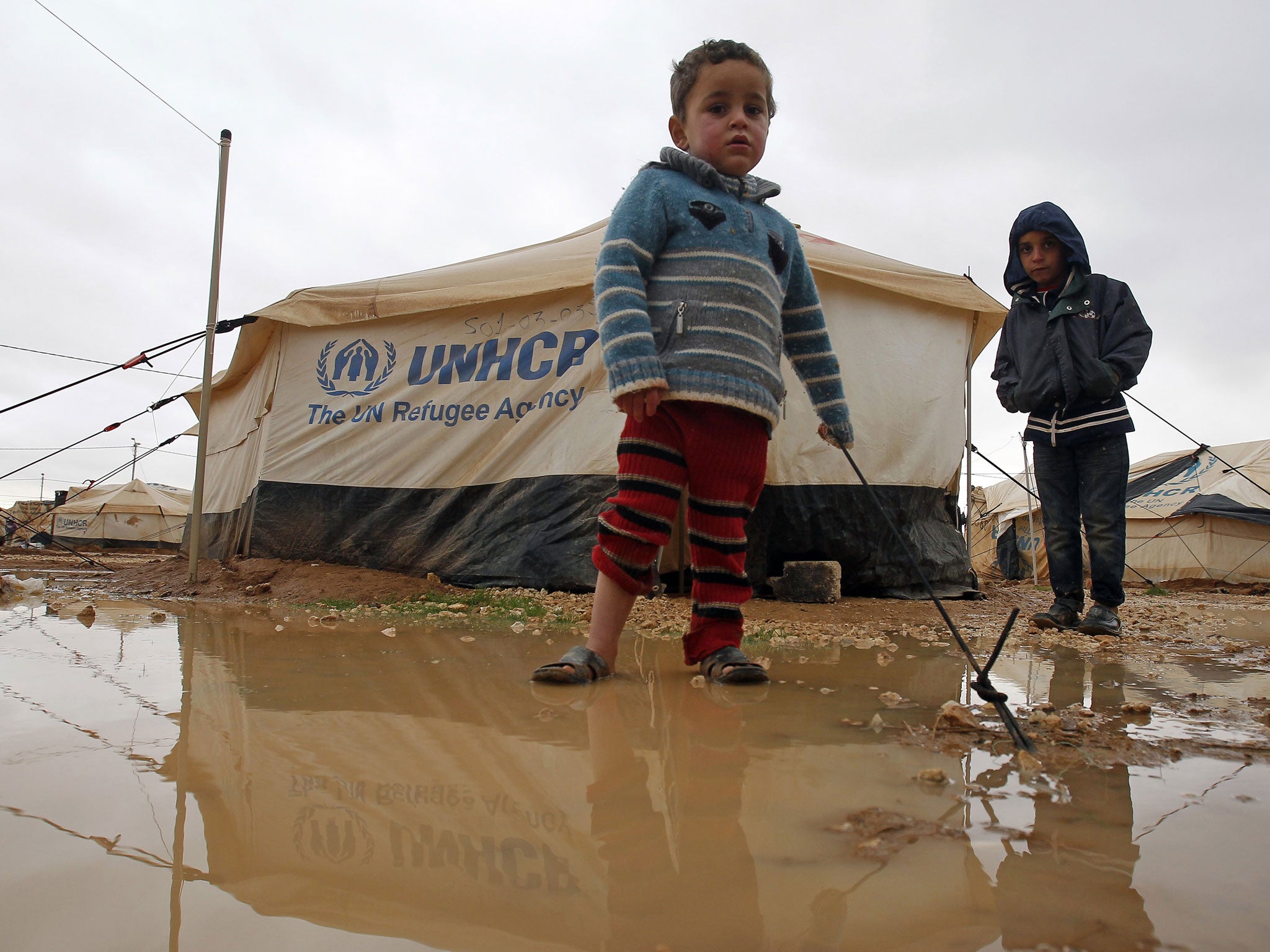Inside Zaatari, the Jordanian refugee camp that makes Syria’s civil war look like the better option

Your support helps us to tell the story
From reproductive rights to climate change to Big Tech, The Independent is on the ground when the story is developing. Whether it's investigating the financials of Elon Musk's pro-Trump PAC or producing our latest documentary, 'The A Word', which shines a light on the American women fighting for reproductive rights, we know how important it is to parse out the facts from the messaging.
At such a critical moment in US history, we need reporters on the ground. Your donation allows us to keep sending journalists to speak to both sides of the story.
The Independent is trusted by Americans across the entire political spectrum. And unlike many other quality news outlets, we choose not to lock Americans out of our reporting and analysis with paywalls. We believe quality journalism should be available to everyone, paid for by those who can afford it.
Your support makes all the difference.Rafat Hariri has cheated death many times. He has been shot at, witnessed explosions and lost several friends. Having felt the wrath of Bashar al-Assad’s forces, the 20-year old Syrian escaped to the relative safety of Zaatari refugee camp in northern Jordan.
But he considers this new life unbearable and plans to return home. “A lot of people go back to Syria. Being here is bad, there is not much food and you cannot really do a lot of things,” he says.
In Syria, Mr Hariri and his friend, Sala Masari, also 20, were militants, fighting against the regime with a group called In the Way of God. They have been living at Zaatari for almost a year.
The young men are restless, however, and miss the status that comes with being an anti-regime fighter. In a bid to gain a sense of purpose they have set up a men’s clothes shop on the side of a dusty Zaatari street. Their stock of jeans, trainers and brightly coloured T-shirts go unsold since most people at the camp are struggling even to be able to afford to eat.
“When we open the doors people come in, but there is not a lot of business,” he says.
Now they are being urged by friends that have already re-entered Syria to join them and take up arms again.
“Assad is an animal,” Mr Masari says. “I will return to Syria in the next few months.”
They are not alone. Zaatari, the sprawling tent city in the desert, now houses about 150,000 Syrian refugees, in often dehumanising conditions. Resources are stretched. Food is minimal. Accessing healthcare is a challenge. And some refugees report that the drinking water supplied at the camp is contaminated, spreading disease.
Other factors prompting Syrians to consider leaving the camp include rising lawlessness. With no judicial system in place theft and violence is common and goes unpunished.
“There needs to be security here. It’s a very big problem,” Abdul Homsi says. In Syria he was a policeman, yet at the camp he runs a modest grocery stall that sells cereal, jam and bottled water. A few days earlier the stall had been burgled. “There is no life here. I want to go home,” he adds. “We want to go back because we want to be able to work and do normal things people do.”
Women feel especially vulnerable. “I have not seen a UN person in three months. Nobody knows who runs the camp,” Manal Masalmeh, a grandmother in her 40s, says. She spends her days with her fellow refugees in Zaatari, passing the time by doing embroidery. But along with her family – two sons, their wives and four grandchildren – she rents an apartment outside of Zaatari, in nearby al-Mafraq, for greater safety.
Due to the huge influx of Syrians the cost of rent in the region has soared. The family’s one bedroom apartment has quadrupled in price over the past year, from 50 Jordanian dinars per month (about £44) to 200. One of her sons was lucky enough to get a job as a manual worker, although his income barely covers the rent. Food and medicines in the area are also in short supply and therefore increasing in cost.
This existence has become unsustainably expensive and the family is looking into what to do next, which could mean going home.
Ms Masalmeh is defiant. “The people of Syria are not afraid,” she says. “Within a year we will go back.”
Join our commenting forum
Join thought-provoking conversations, follow other Independent readers and see their replies
Comments